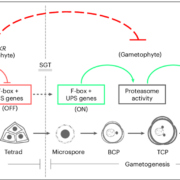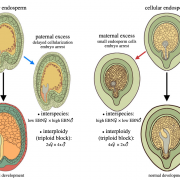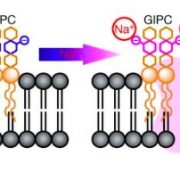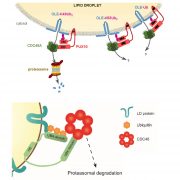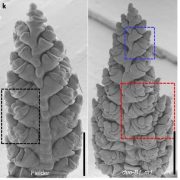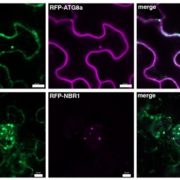The ADAPTOR PROTEIN-3 complex mediates pollen tube growth by coordinating vacuolar targeting and organization (Plant Physiol)
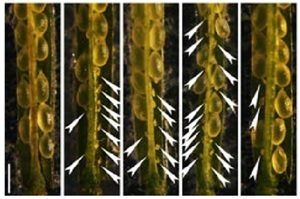 Adaptor proteins (AP) are involved in sorting proteins and are able to recognize cargo and coat proteins during vesicle formation. AP-3 specifically targets protein cargoes to vacuoles. Feng et al. investigate the role of AP-3 in plant reproduction. ap-3 mutants have reduced seed set that is characterized by unfertilized ovules predominately at the bottom of siliques, owing to the inability of pollen tubes to grow that far down the pistil. Vacuolar organization was also compromised in these mutants, as seen by less extensive vacuolar reach and decreased complexity. The authors further confirm mislocalization of a tonoplast localized protein (PAT10) and its subsequently associated proteins (CBL2 and CBL3). Finally, ap-3 mutants exhibited reduced calcium levels at the pollen tube tip and this was found to contribute significantly to the reduction in pollen tube growth. This paper highlights the importance of several proteins in maintain pollen tube growth and adds to the mechanism of how calcium-gradients are sustained at the pollen tube tip. (Summary by Alecia Biel) Plant Physiol. 10.1104/pp.1701722.
Adaptor proteins (AP) are involved in sorting proteins and are able to recognize cargo and coat proteins during vesicle formation. AP-3 specifically targets protein cargoes to vacuoles. Feng et al. investigate the role of AP-3 in plant reproduction. ap-3 mutants have reduced seed set that is characterized by unfertilized ovules predominately at the bottom of siliques, owing to the inability of pollen tubes to grow that far down the pistil. Vacuolar organization was also compromised in these mutants, as seen by less extensive vacuolar reach and decreased complexity. The authors further confirm mislocalization of a tonoplast localized protein (PAT10) and its subsequently associated proteins (CBL2 and CBL3). Finally, ap-3 mutants exhibited reduced calcium levels at the pollen tube tip and this was found to contribute significantly to the reduction in pollen tube growth. This paper highlights the importance of several proteins in maintain pollen tube growth and adds to the mechanism of how calcium-gradients are sustained at the pollen tube tip. (Summary by Alecia Biel) Plant Physiol. 10.1104/pp.1701722.


